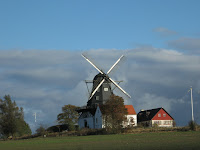Paula F. Saravia (Ph.D.)
I am a Chilean medical anthropologist doing research on infectious diseases, race, and emotions among the Aymara on the Bolivia-Chile border.
Links
- Sociedad Civl y Sociedad Política en Chile: el caso de la comuna de El Bosque
- Internet, brechas y realidades
- World Health Organization - A world free of TB
- PUBMED
- Antropología - UC San Diego
- Linköping Universitet
- Universidad de Evora
- historia de la medicina
- Rijks Museum
- virgin radio UK
- Bonjour America
Dissertation Summary
Ujuk Usu. Medicine, Tuberculosis and Race among the Aymara of the border between Bolivia and Chile.
Along both sides of the Bolivian-Chilean border, Aymara indigenous people suffer from tuberculosis at much higher rates than the white-mestizo population. However, they experience the illness differently. In this comparative qualitative multi-sited study I argue that these differences emerge from the intricate ways in which the experience of ujuk usu (tuberculosis) is connected to processes of structural violence such as institutional racism and precarity. I show that in Chile, the Aymara face economic instability and political exclusion, while they are also highly medicalized. In Bolivia, instead, while there is an ongoing process of sociopolitical transformation towards decolonization, there are also structural constraints that prevent the state from fully delivering biomedical antituberculosis treatment to Aymara communities. This produces particular ways of interpreting and signifying pain. I argue that Aymara patients are able to contest the treatment and resist the medicalization by integrating the indigenous categories of suma qamaña (to live well) to their everyday struggles for achieving prosperity and health for themselves and their families. Considering ethnopsychological theorization of emotions, I underline the role of both emotions and cultural conceptions of health in shaping the illness experience. I analyze Aymara notions of “salir adelante” (to come through) and “prosperidad” (prosperity) in relation to notions of health, economic prosperity, and emotional well-being. I discuss the particular associations that Aymara make between the individual illness experience and indigenous identity in both countries by looking at the traditional hydraulic-topographic model of the body, and the importance of wari (fat) in relation to samaña (breath), and ch’ama (physical energy), sweat, and work as key features of the framing of ujuk usu. I argue that renegar (bitterness/sadness) and compartir (community engagement) are linked to larger indigenous discourses of suma qamaña, which are currently decoded and enforced through decolonization policies in Bolivia and neoliberal multiculturalism in Chile. This dissertation the political dimension of the medicalization process and its relevance in understanding the embodiment of structural inequalities that transcend national borders.
March 19, 2014
April 16, 2012
“Del dolor a la ciudadanía: tuberculosis y descolonización en Bolivia.”
Este trabajo discute el doble vínculo que presenta la enfermedad: individualización o separación de lo colectivo (estigma, por ejemplo), y la adscripción a nuevos modelos de sociabilidad basados en discursos biomédicos y biotécnológicos. Al mismo tiempo, se busca analizar la experiencia de enfermar como parte de otros procesos sociopolíticos mayores, como es el proyecto de la desconolonización en Bolivia. De esta manera, en este trabajo la enfermedad del “cuerpo indígena” se analiza marco de la construcción de lo nacional, desafiando así las formas tradicionales de entender estos procesos.
April 16, 2008
“Framing Tuberculosis in Chile 1880s-1940s. A Historical-Anthropological Approach”. Erasmus Mundus Master Phoenix Dynamics of Health and Welfare.

Consiste en un estudio exploratorio sobre la experiencia de la Tuberculosis en Chile 1880s-1940s.
En Diciembre de 2007 y Enero de 2008 estuve en Chile buscando información, lamentablemente encontré mucho sobre la visión de los médicos y poco sobre la de los enfermos y pacientes de los sanatorios.
Linkoping, Suecia
January 07, 2007
Ferias do Natal
 e luces y castañas alegran los días de invierno cada vez más cortos.
e luces y castañas alegran los días de invierno cada vez más cortos.January 03, 2007
Primera Estacion: Evora, Portugal

Llegué a Evora en Septiembre de 2006. Todavía hacía mucho calor y los días eran muy largos. La ciudad de Evora es muy pequeña, y se puede llegar caminando a todas partes; una de las cosas que más me agrada de vivir aquí es que está todo muy concentrado y puedo caminar. Recorro el centro histórico todos los días para llegar a la Universidad.



